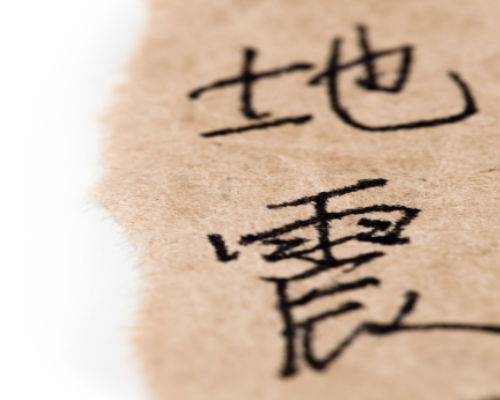
The triple tragedy of the earthquake, tsunami and nuclear disaster in Japan has not only shaken the world’s third largest economy, but also brought tremors to the global economy. As per, economist Robert Shiller, the Japanese quake and the tsunami could reach a global scale and this can be seen from the fact that the markets across the globe have crashed in the last few days.
Global stock markets
With most of the countries in the world closely connected due to globalization, the worsening state of affairs of Japan’s nuclear power crisis has sent all global markets into a tailspin.
The Nikkei has lost around 17% of its value since the huge catastrophe struck the country on a fateful Friday. All the Asian markets also ended Tuesday in red, while the European stocks dropped 3.1% last Tuesday morning, led by shares of nuclear-related utilities, luxury groups and assurance companies. Stocks in the rest of Asia as measured by MSCI fell nearly 3% while the MSCI world index slid 1.2%. The US Markets too ended lower. Automobile, insurance and utilities (related to nuclear energy) companies were among the losers. However, the nuclear fallout favored the companies dealing in coal and solar power.
Labeled as ‘Japan’s darkest time’ since World War II, the devastation has caused a slump in shares commodities and currencies
Agricultural commodities
Japan’s disaster may have a significant impact on grain prices. Japan is one of the world’s biggest food importers. As per US Department of Agriculture the country relies on bought-in products for 60% by calories of what its citizens eat.
The tsunami has disrupted as much as 20% of Japan’s livestock-feed output. Japan imported 14.3 million tons of U.S. corn last year. Japan’s U.S. wheat purchases stood at 3.1 million tons, while 2.3 million tons of soybeans were purchased.
Corn, wheat and soybean futures rose on speculation that Japan will step up grain purchases once ports and milling operations reopen.
Crude Oil
Oil fell 3.7% to US$ 97.41 a barrel, its lowest price in almost three weeks, as concern that damage from Japan’s earthquake may limit crude demand. Japan is third largest consumer of crude and consumed 4.42 million barrels a day of oil in 2010.
The nature’s fury has led to a closure of its refineries and has affected about 1.3 mb of capacity, almost 29% of the country’s total of 4.516 mb.
While in near term, the demand may remain low till the nuclear power plants start functioning normally once again. Japan’s manufacturing is electricity-intensive, and gets about 30% of its power from nuclear plants. About a fifth of the nation’s nuclear plants are off-line, on account of the quake.
As per International Energy Agency, oil demand in Japan may climb by about 200,000 barrels a day if the country makes up the shortfall in nuclear power with crude-fired generation. Japan may have to go in for more oil imports. Hence the drop in oil price is short lived and the price is sure to rise going forward. Natural gas futures already rallied more than 2% after a nuclear reactor reported blast in Japan which will boost natural gas demand for nation’s energy.
Commodities
Japan is the world’s second-largest steel producer after China. It produced 8% (110 MT) of the global crude steel output last year. Lower demand due to the tragedy has led to a decline in prices. Expectations
Iron ore prices also dropped to a three-month low after the quake. With Japan’s steel industry facing shutdowns, demand for iron ore and coking coal has slowed down.
Gold:
In global markets, gold fell 1.3% to US$ 1,408.07 an ounce, while silver by 3.6% to US$ 34.62 an ounce. The rising uncertainty about Japan has sparked sharp declines in gold alongside most other asset classes, as investors scramble to lock in existing gains. Gold which is generally considered a safe bet, for a change so a drop in prices mainly on account of concern that the global economic recovery may be hurt. The investors are opting to hold liquid cash rather than gold.
Impact on India
The effect of Japan quake is not very significant on the Indian economy. Japan constituted around 2% of India’s foreign trade in 2009-10. Japan accounted for 2.3% of total imports and 2% of total India’s exports. Automobile and IT sectors have some exposure in Japan; however, the effect of the devastation would not be too huge on the Indian companies, apart from some possible supply-related disruptions in certain areas.
However, there may be an indirect effect due to prices of global commodities and capital flows.
For e.g.: Japan is the fourth-largest consumer of rubber in the world due to the large demand from the automobile industry. India being the world’s largest producer of rubber, the companies may see some slowdown.
Indian power companies may have to pay more for thermal coal in the near future, in case Japan has to shut its nuclear power plants and increase the thermal power generation. India imports 100 million tonnes of thermal coal to meet its energy demand.
In the end:
While in the near term, the production and consumption is expected to fall. This will lead to a drop in the prices of the commodities. However, in the longer run, as Japan undergoes massive reconstruction, the demand is expected to surge. This will in turn drive up the market price for everything from oil and commodities.
Good writeup!